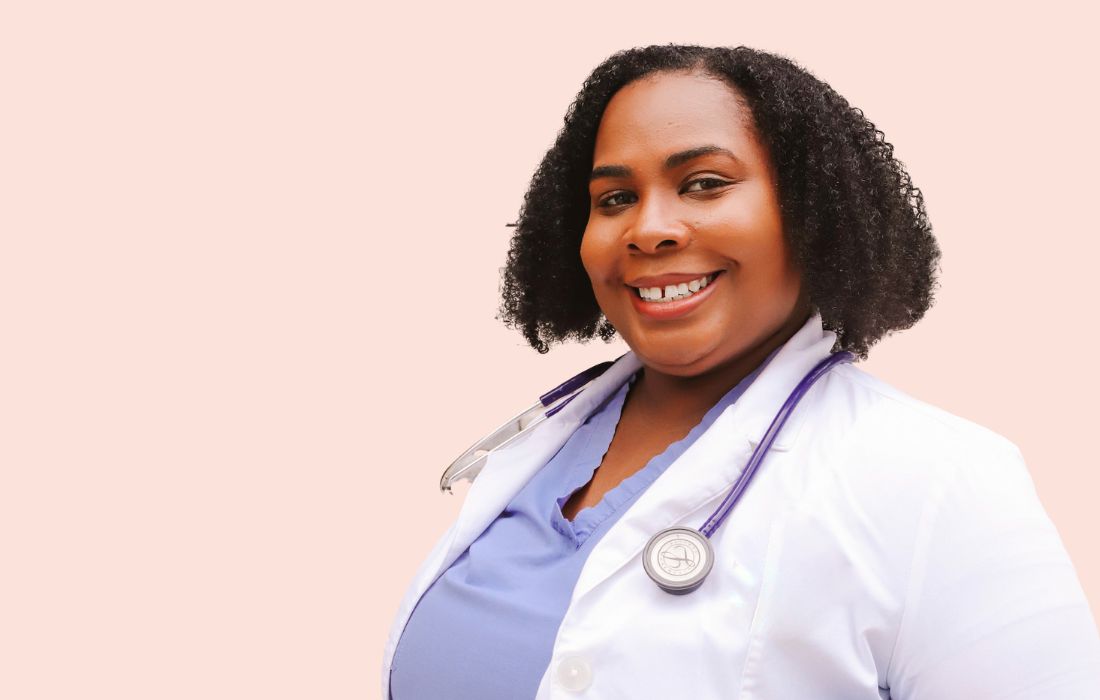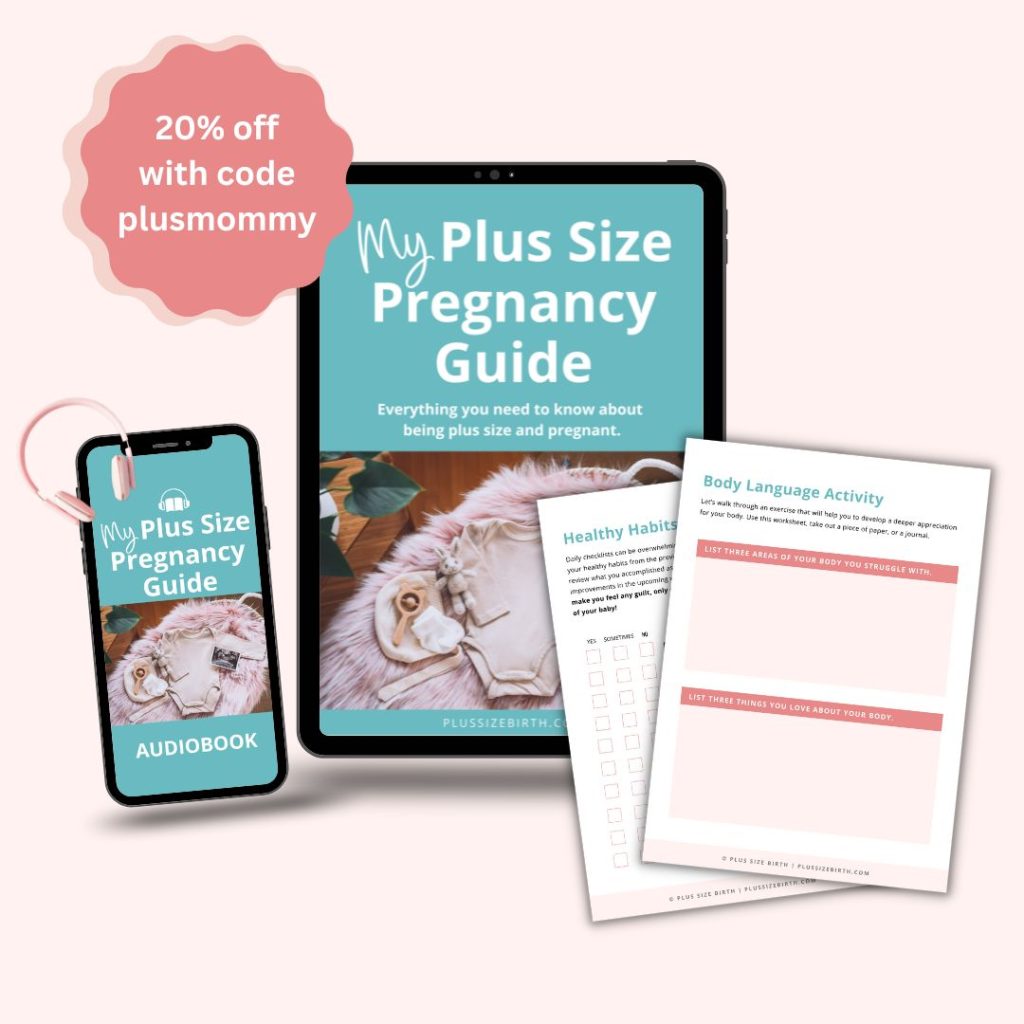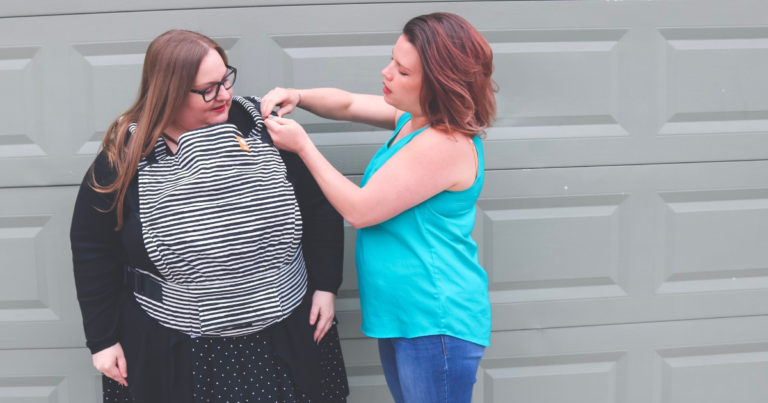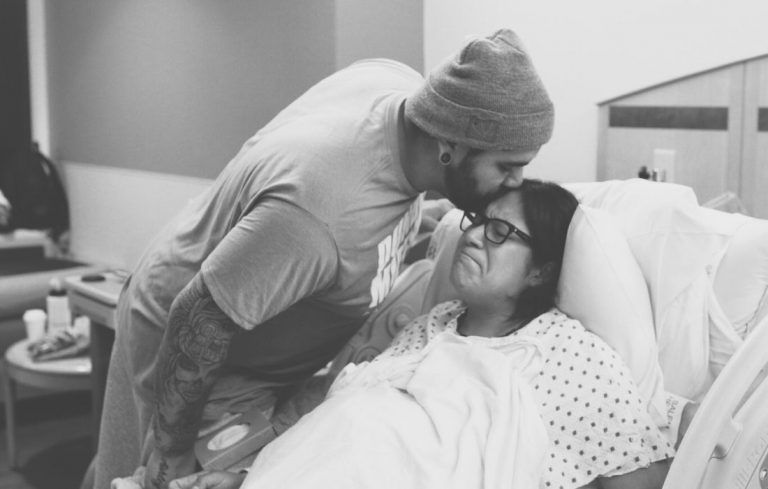The Best Fertility Tips For PCOS From A Nurse Midwife
Are you searching for fertility tips for PCOS? So many people struggle to find helpful information and providers to support their fertility journey. Katrina Rollins is trying to change that!
Katrina Rollins, CNM, ARNP, MPH, is a Nurse Midwife and Nurse Practitioner who shares tips for getting pregnant with PCOS. She has over seven years of experience diagnosing and treating people with Polycystic ovary syndrome (PCOS).
Katrina’s passion is helping people to get pregnant with PCOS!
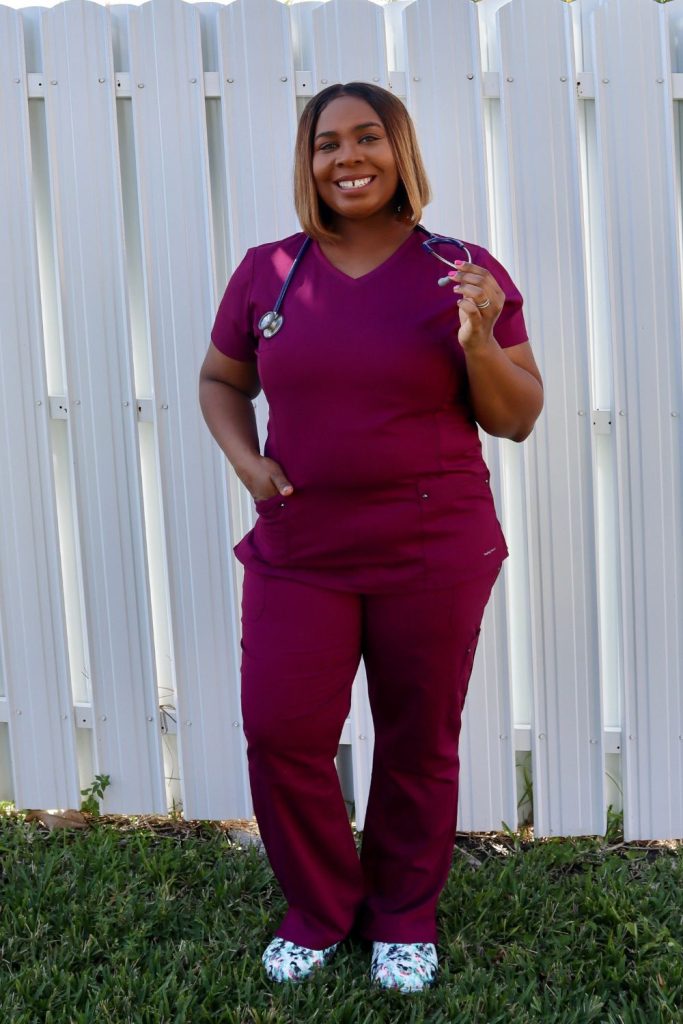
What is PCOS?
Polycystic ovary syndrome (PCOS) is a hormonal disorder.
Most people with PCOS experience irregular periods. They also have a higher level of androgen or male sex hormones like testosterone. And they will also sometimes have polycystic ovaries.
PCOS presents differently for everyone, and because of this, people often struggle to find a care provider who can accurately diagnose their medication condition.
What are some PCOS complications?
We know PCOS impacts fertility, but additional medication complications like endometrial hyperplasia exist.
The endometrium is the lining of the uterus. If you don’t shed that endometrium monthly during menstruation, there can be an overgrowth of tissue. Over time this can lead to cancer in the uterus.
With PCOS, there’s also the risk of type two diabetes because there’s more resistance to insulin with PCOS. So it’s essential to learn to manage it early as soon as possible, which is why early diagnosis is key.
What are some signs of PCOS?
A typical cycle should be anywhere from about 24 to 35 days. So if you’re skipping your period or have prolonged bleeding, it could be a sign of PCOS.
Other signs to look for are if you notice any excessive hair growth on the face, the chest, the back, hormonal acne, or unintentional weight gain.
So, when it comes to fertility tips for PCOS, you’ll want to start with advocating for a diagnosis.
How to get diagnosed with PCOS?
You need at least two markers for a PCOS diagnosis, including higher testosterone levels, irregular periods, or polycystic ovaries.
If you’re experiencing signs of PCOS, advocate for bloodwork and an ultrasound to look for polycystic ovaries.
What blood tests diagnose POCS?
You’ll want to see if you have elevated androgen levels, so DHEA/testosterone.
You also can look at the ratio of two female hormones, follicle-stimulating hormone (FSH) and luteinizing hormone (LH). For example, an LH-to-FSH ratio greater than 3-to-1 could be a marker for PCOS.
But remember, some people do not have higher testosterone levels and still can have PCOS. That’s why people need two of the three criteria for a PCOS diagnosis.
What are fertility tips for PCOS?
The biggest obstacle to fertility with PCOS is that you’re not ovulating regularly.
If you have periods every month, you have 12 chances of getting pregnant each year. If you have periods every other month, that’s six chances, and so on. So, you want to do all you can to have as many changes as possible.
With PCOS, it’s common to have irregular periods and a reduction in egg quality. So that leads us to the first fertility tip for PCOS.
Nutrition To Support Your Fertility
Katrina’s approach to fertility nutrition is adding more, not dieting or eating less.
“Food is medicine. So we should never be told to eat less. So I advocate for eating every two to three hours lots of protein-based snacks because that helps keep the blood sugar and the hormone stable.”
She encourages people to avoid diet foods because they often don’t contain many nutrients.
One thing people can do right away to improve egg quality is to pay close attention to nutrition. For example, chicken eggs contain folate, which can improve egg quality. So, adding more eggs to your fertility diet can be beneficial.
Omega three is also a great source of folate, so add foods like fatty fish like salmon, oysters, green leafy vegetables, flax seeds, and chia seeds to your diet.
Beyond the food you eat, you’ll also want to speak with your care provider about supplements for getting pregnant with PCOS.
Along with food and supplements, staying hydrated is essential for fertility and pregnancy.
Mental And Physical Wellness While TTC
Stress can also impact fertility, so you’ll want to do all you can to reduce stress, including getting lots of rest and moving your body in ways that feel good.
Be A Great Healthcare Advocate
Katrina shares how advocating for yourself in the healthcare system is critical regarding fertility tips for POCS.
“Don’t be afraid to speak up. I know it can be a little intimidating. I think we were kind of raised to think the health care provider knows it all, and just do what they say. But it really should be collaborative. And you should feel that you can decide what you want to do with all of the options.”
Beyond writing down your questions in advance, so you don’t forget when you want to ask, she encourages people to write down any labs or medications they’d like to discuss.
Listen to the podcast episode below, where Katrina shares the best fertility tips for PCOS and talks about supporting people during a plus size pregnancy.
Recording & Show Notes: Plus Mommy Podcast Episode 182
Transcript happily provided upon request.
Resources Mentioned On The Show:
- Connect with Katrina via her websites Global Women’s Care and katrinarollins.com. Or via social media at Instagram, Tiktok, or YouTube.
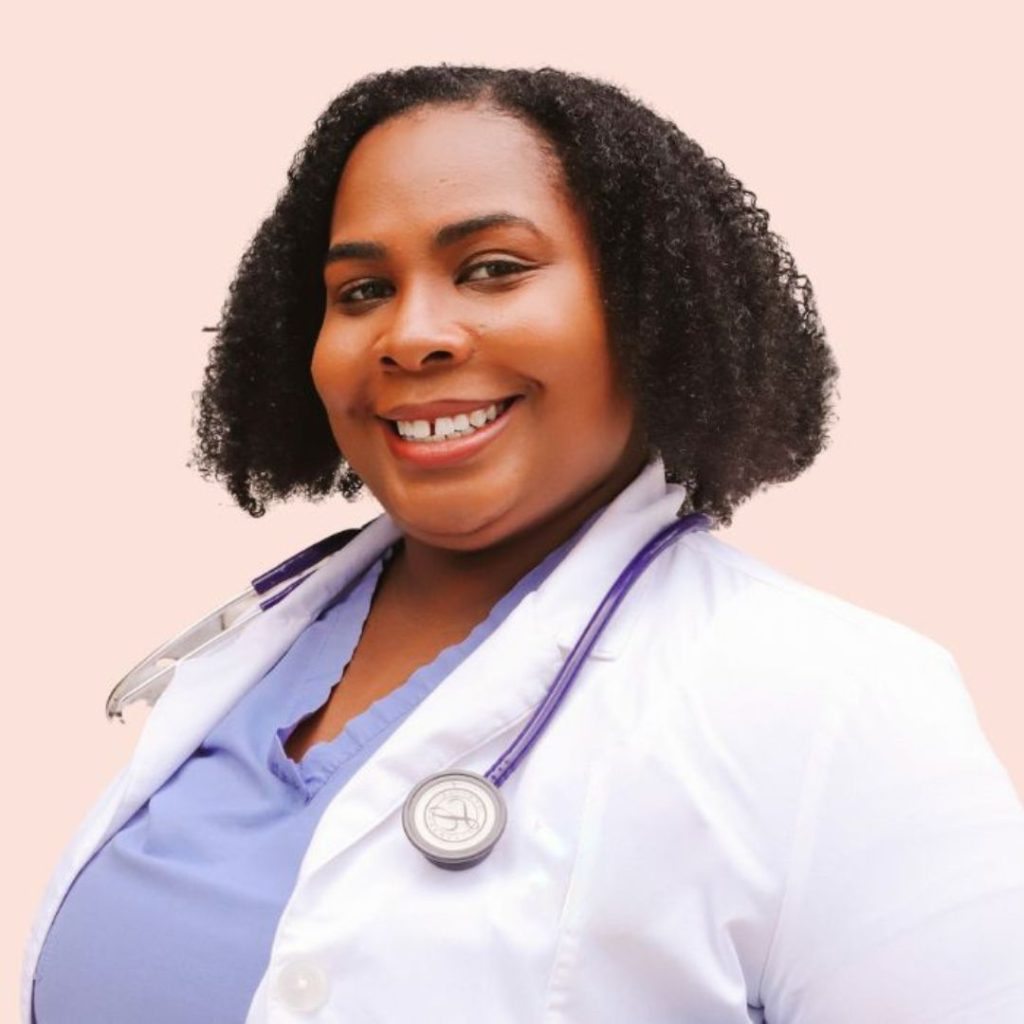
Katrina Rollins, CNM, ARNP, MPH is a Nurse Midwife/Nurse Practitioner with 7 years of experience diagnosing and treating women with PCOS. She has PCOS herself and has spent the last 4 years learning how to manage her symptoms holistically and sustainably. After the birth of her son, she developed a passion for helping other women with PCOS on their wellness and fertility journeys. She owns a holistic telemedicine Women’s Health practice that serves women in Florida, Arizona, and Colorado.

